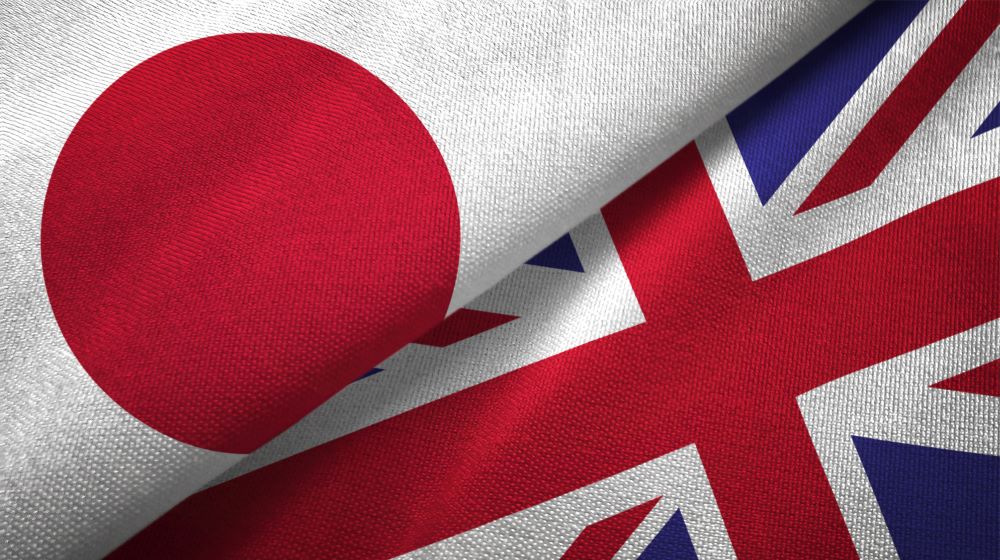
The UK has today (13 May) published its negotiating objectives for a trade deal with Japan with talks set to begin on a virtual basis shortly.
The negotiations will begin from the basis of the EU-Japan deal which came into force in 2019.
The government says a deal could increase UK GDP, create new opportunities for SMEs and increase the UK’s supply chain resilience.
The UK can now negotiate its own trade deals as an independent, sovereign nation, following its departure from the EU in January 2020.
You can read the full document outlining the UK’s objectives here.
Billions boost
The government’s analysis suggests a deal could provide a £1.5bn boost to the UK economy, increase trade flows between the two countries by £15.2bn and provide an £800m long-term increase in UK worker wages.
It hopes to knock down trade barriers for the 8,000 SMEs already exporting goods to Japan, estimating savings of £33 million a year in zero or lower tariffs
Secretary of State for International Trade, Liz Truss, said both sides are “committed to an ambitious timeline to secure a deal” which will go further than the EU-Japan deal.
Kevin Shakespeare, director of stakeholder engagement at the Institute of Export & International Trade, told the Daily Update (13 May) that the commencing of talks will be “welcomed by businesses” as Japan is “one of the UK’s most important trading partners.”
In 2018, Japan was the UK’s fourth biggest non-EU trading partner with total trade valued at £29.1bn.
Sectors to benefit
The government has highlighted that the following sectors could benefit most from the deal:
- Digital trade – it hopes an ambitious deal could see the UK take the lead on “important emerging technologies” including blockchain, driverless cars and quantum computing.
- Professional and business services – the UK exported £1.5bn in this sector in 2018 and would hope to negotiate mutual recognition of its professional qualifications.
- Financial services – the UK exported £4.10bn in this sector to Japan and hopes to closely align on regulations.
- Agriculture – the UK believes agriculture could benefit from reduced tariffs on food and drinks.
- Textiles and leather – currently this sector has tariffs of up to 10% to Japan.
- Automotive – the UK exported £1.12 bn of cars to Japan in 2018.
- Creative industries – the UK hopes to agree copyright provisions linked to an “effective and balanced global system.
As was the case when it published objectives for a deal with the US, the government is adamant the NHS will not be a part of the negotiations.
Stepping stone
The government also said the bilateral negotiations will be a “logical stepping stone” to joining the Comprehensive Progressive Agreement for Trans-Pacific Partnership (CPTPP).
CPTPP is a free trade agreement between 11 countries in the Asia-Pacific region: Australia, Brunei, Canada, Chile, Japan, Malaysia, Mexico, New Zealand, Peru, Singapore and Vietnam.
The trading bloc represents 495 million consumers and 13.5% of global GDP.



